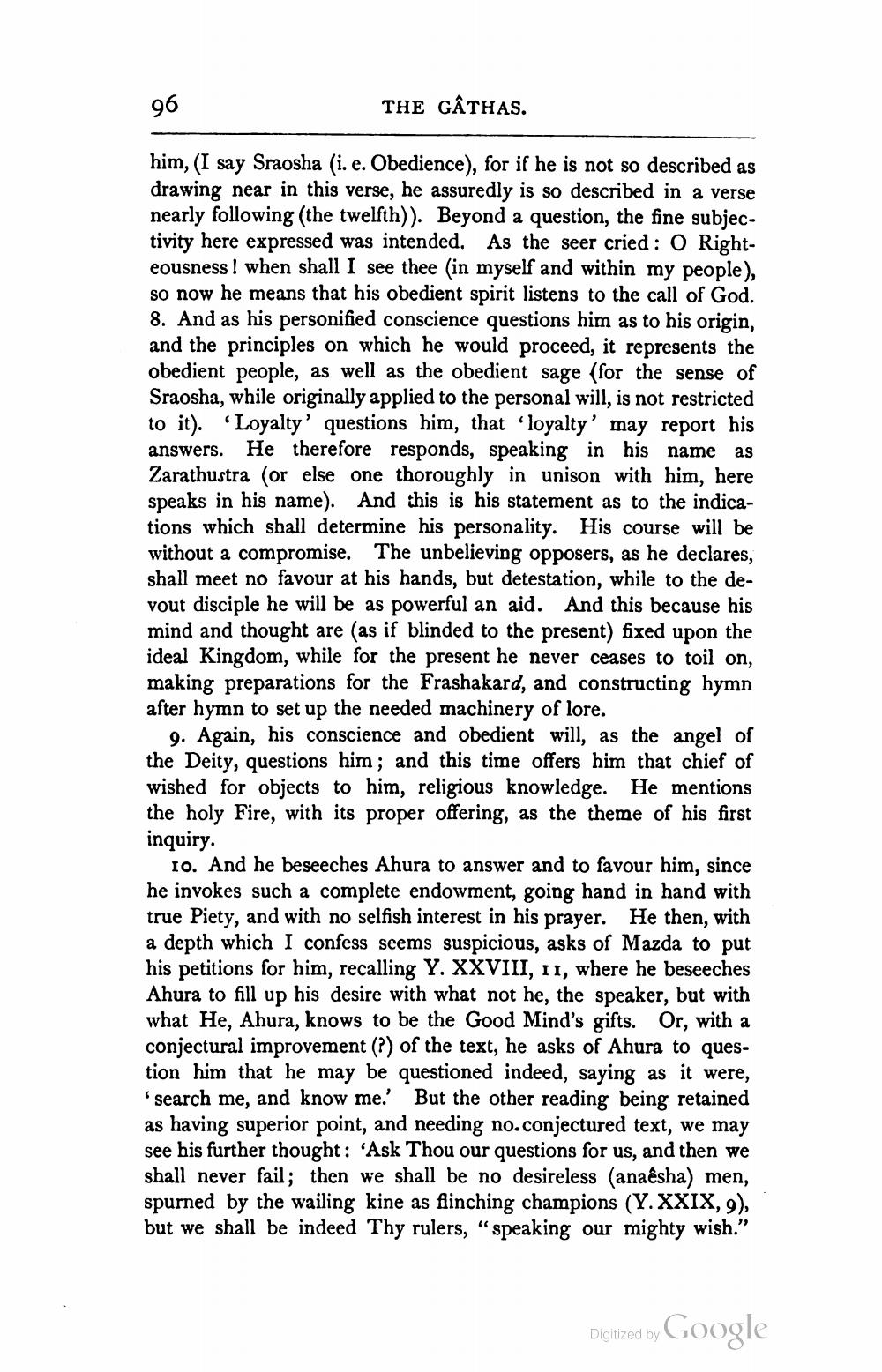________________
96
THE GÂTHAS.
him, (I say Sraosha (i. e. Obedience), for if he is not so described as drawing near in this verse, he assuredly is so described in a verse nearly following the twelfth)). Beyond a question, the fine subjectivity here expressed was intended. As the seer cried : O Righteousness I when shall I see thee (in myself and within my people), so now he means that his obedient spirit listens to the call of God. 8. And as his personified conscience questions him as to his origin, and the principles on which he would proceed, it represents the obedient people, as well as the obedient sage (for the sense of Sraosha, while originally applied to the personal will, is not restricted to it). "Loyalty' questions him, that loyalty' may report his answers. He therefore responds, speaking in his name as Zarathustra (or else one thoroughly in unison with him, here speaks in his name). And this is his statement as to the indications which shall determine his personality. His course will be without a compromise. The unbelieving opposers, as he declares, shall meet no favour at his hands, but detestation, while to the devout disciple he will be as powerful an aid. And this because his mind and thought are (as if blinded to the present) fixed upon the ideal Kingdom, while for the present he never ceases to toil on, making preparations for the Frashakard, and constructing hymn after hymn to set up the needed machinery of lore.
9. Again, his conscience and obedient will, as the angel of the Deity, questions him; and this time offers him that chief of wished for objects to him, religious knowledge. He mentions the holy Fire, with its proper offering, as the theme of his first inquiry.
10. And he beseeches Ahura to answer and to favour him, since he invokes such a complete endowment, going hand in hand with true Piety, and with no selfish interest in his prayer. He then, with a depth which I confess seems suspicious, asks of Mazda to put his petitions for him, recalling Y. XXVIII, 11, where he beseeches Ahura to fill up his desire with what not he, the speaker, but with what He, Ahura, knows to be the Good Mind's gifts. Or, with a conjectural improvement (?) of the text, he asks of Ahura to question him that he may be questioned indeed, saying as it were,
search me, and know me.' But the other reading being retained as having superior point, and needing no.conjectured text, we may see his further thought: 'Ask Thou our questions for us, and then we shall never fail; then we shall be no desireless (anaêsha) men, spurned by the wailing kine as flinching champions (Y.XXIX, 9), but we shall be indeed Thy rulers, “speaking our mighty wish.”
Digitized by
Digitized by Google




